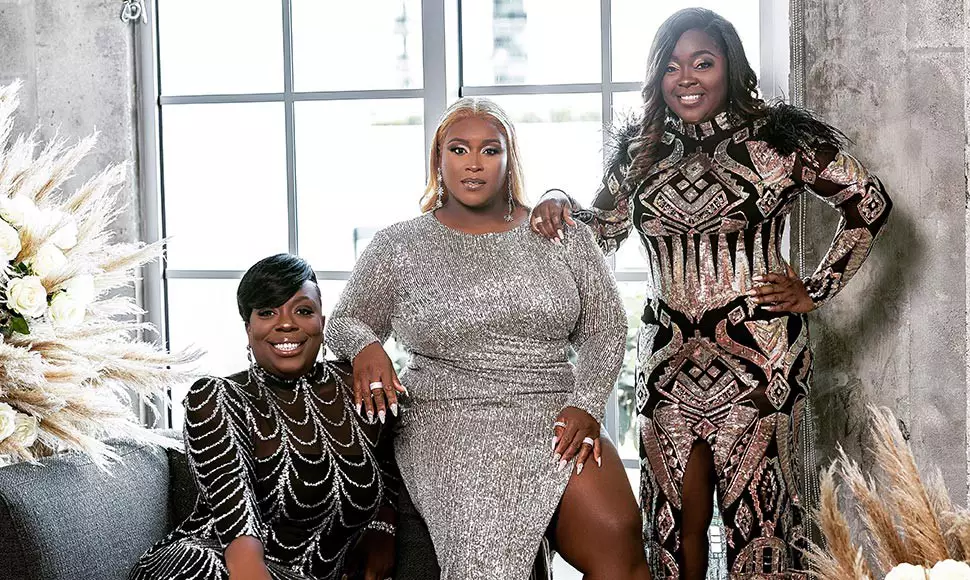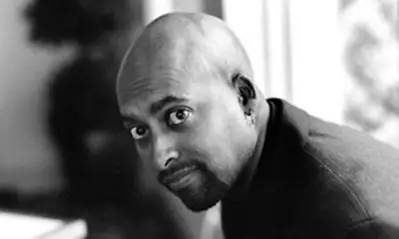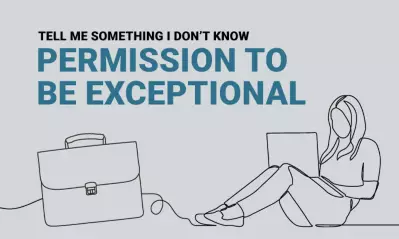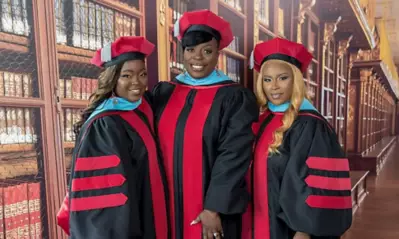Discover more stories in our Alumni Chronicles Magazine!
Better together: How three friends made earning their doctorates a team sport

By Elizabeth Exline
Dr. Natasha Myla, Dr. La-Toya Facey-Walker and Dr. Jennel E. Mayers have a friendship that predates most of their other roles. It stretches back to before their respective marriages, their careers, their children and even the three higher education degrees (bachelor’s, master’s, doctorate) they earned together.
Ultimately, the question is not whether theirs is a lasting friendship but just how much their friendship has driven their successes.
“We have a lot of separate accomplishments, but I know that this accomplishment [earning a doctorate] I would not have been able to achieve without them,” Facey-Walker says.
That goes double for Myla and Mayers. It turns out that, when it comes to setting and achieving lofty goals, there is strength in numbers.
Birds of a feather
Talk to these three women — and it’s a given you’ll speak with all three at once rather than individually — and it’s like talking to three sisters who really like each other.
“Our families are close. Our kids are close,” Facey-Walker says simply.
“We’re all godmothers to each other’s children,” Myla adds.
They may be close, but they are not the same. In fact, their complementary personalities probably explain better than anything why they get along so well. Myla is the bubbly one, the one who perpetually wears a smile and whose vivacious energy explains her entrepreneurial passion for emceeing on weekends and evenings.
Mayers is the quiet, calm one. She waits to speak until she’s sure of what she has to say. She grounds the group in steady good sense.
And Facey-Walker is the glue that holds them all together as well as the driving force that keeps them in motion. She’s the one to offer up pithy one-liners like, “I want you to name a group of best friends who graduated with their bachelor’s, master’s and doctorate together — I’ll wait.” (This was from an Instagram video the trio produced to commemorate the completion of their doctorates, and it captures perfectly their personalities and accomplishments.)
Facey-Walker and Mayers met in middle school and stayed friends over the course of high school and Sunday church services. In college, they encountered Myla and discovered the missing piece to their triumvirate.
The three women would go on to complete their bachelor’s and master’s degrees together and work as educators in the same Broward County school district in Florida. They live within five or 10 minutes of each other. Their children, as Myla noted, play with each other.
But they weren’t done.
No one can pinpoint whose idea it was to pursue their doctorates in education. It simply evolved, like their friendship, out of like minds and goals.
“We said, ‘You know what? Let’s get our doctorates!’ We looked at each other like, ‘Let’s go for it,’” Myla recalls.
The beginning of a journey
True to form, the three friends began researching their options. They divvied up tasks, looked up schools and played to each other’s strengths.
Facey-Walker explains: “Jennel is big on research. She’s always going to read every detail. … I will be the one submitting the documents. … Tasha is the one who’s going to correspond with people. Whoever needs to be spoken to, she’s going to get on the phone.”
The women eventually settled on University of Phoenix, largely thanks to its flexible online programs, which they could complete while raising families, working full time and pursuing their passion projects.
(Because, of course, each of them has a passion project: Myla owns the emcee/entertainment hosting business Hawt Hosting; Facey-Walker co-owns a fitness center with her sister; and Mayers own a women’s accessories business called Exotic Jems.)
While the online format worked for them, the process was far from simple. “We don’t want people to think it was easy,” Facey-Walker says. “It really wasn’t. It was definitely a journey, and I know that the three of us probably wouldn’t have done it in isolation. It was something [for which] we actually needed each other.”
Passion and perseverance
By “journey,” Facey-Walker and her friends mean both the expected and the unexpected. There was the challenge, for example, of finding a research chair to guide each of them through the process. There was the challenge of defending their dissertations, which ended up being less taxing than expected. As Facey-Walker puts it, “We thought defending was going to be the hardest part, and it actually was not. It was, for us, the easiest part, and I guess that’s because we present all the time at our jobs.”
Then there were the challenges that life presented outside of the classroom. And while these included missed dance recitals and family gatherings, those were just the beginning.
Myla, for example, suffered a miscarriage at the start of the program. She later became pregnant and carried the baby, her second son, to term.
Myla recalls: “We had a big project that was due one night, and when I went to the hospital, they were like, ‘You’re having the baby today.’ And I’m like, ‘No! I have an assignment that’s due!’”
Her friends stepped in and made sure she had what she needed to get it turned in on time.
After the birth, Myla suffered postpartum depression and insomnia. But in true friendship, Mayers and Facey-Walker supported her through that journey, doing whatever was needed to help her feel like herself again. She also underwent a divorce before eventually finding love again.
Mayers, meanwhile, required a hysterectomy after years of medical difficulties, including the discovery of precancerous cells.
And Facey-Walker faced her own tough challenge: She was diagnosed with cancer during her doctorate program. After surgery, she needed to step away from school to, as she puts it, reset, and her friends did the same in solidarity. “We did everything together,” Facey-Walker says.
Finding the why
It’s a story none of them can recount without crying. But it is perhaps a testament to their character, both shared and individual, that the tears are balanced with laughter and no small amount of motivation.
“We fought as well. We’ve had our arguments, but at the end of the day, the love runs deep,” Facey-Walker says. “For us, it’s really just lifting each other up and making sure that we accomplish the goals that we set.”
Each woman had her own reason for pursuing a doctorate. Myla credits her children for motivating her. Facey-Walker found inspiration in her daughters, her mother (who was a single parent dedicated to Facey-Walker’s success) and herself. “The vain part of me,” she quips, “wants to be the best.”
Mayers’ motivation is the most poignant. As one of four children of parents committed to their children’s future, she felt compelled to succeed for both her and their sakes.
“From a young age, I always said I was going to be a doctor, even when I didn’t really understand what that was,” she says, smiling.
Going through the program, Mayers says her mom was her number-one cheerleader. She was waiting for Mayers outside the door while Mayers defended her dissertation. Mayers opened the door, her doctorate newly conferred upon her, and her mom “was ready with her arms open like, ‘Oh my God, you’re a doctor!’” Mayers recalls.
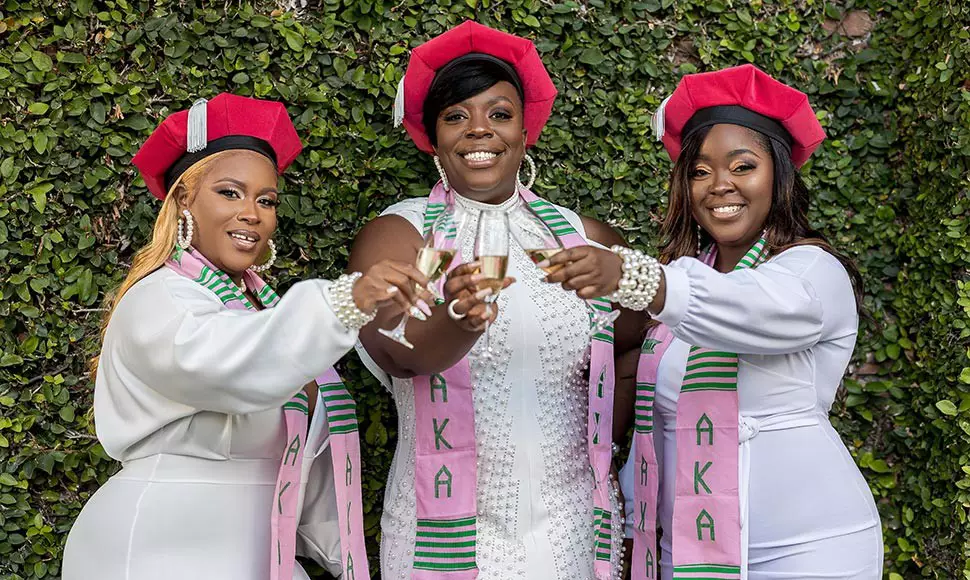
Even with the support of their families, their partners and each other, completing the program wasn’t always a given. There were times when giving up seemed like, if not an entirely good idea, at least preferable to finishing a demanding program.
Facey-Walker wasn’t the only one who wanted to quit at times, but she puts it best when she says, “I’m codependent and I need company to quit, [but] they [didn’t] want to quit. So [then I was] forced to sit down at three in the morning and write my paper.”
When it came time to celebrate their accomplishment, the women pushed through scheduling challenges, balancing work and family and even a pandemic to ensure they all crossed that stage during the same ceremony in Atlanta.
“We’ve all made so many sacrifices,” Facey-Walker says.
“We started together,” Myla says. “We were going to finish together.”
The payoff
Today, the three women are looking firmly to the future. They continue to work in education — Myla as an instructional facilitator in math for 12 schools, Mayers as a literacy coach and Facey-Walker as a district administrator — but they are passionate about affecting education from the top down.
That might mean a university-level teaching role at some point. Or, for Facey-Walker, a role in educational technology. Who knows? As Facey-Walker puts it, “The problem of hanging around ambitious people … is we don’t look at a problem the same way. Is it challenging? Yes, and we know it’s gonna cause us some sleepless nights, but we’re just like, ‘All right. So, what’s the game plan?’ And we get to work.”
With their doctorates under their collective belt, Facey-Walker, Mayers and Myla know they’re unstoppable no matter which career path or paths they choose. Education, these friends observe, is the one thing no one can take away from you. The process teaches perseverance; the education itself gives you skills you can take anywhere.
Facey-Walker sums it up thus: “In a world where it’s a lot of smoke screens, we can stand up and know that when the smoke dissipates, we’re still standing with our degrees.”
Join the 2% of the world that has a doctorate. University of Phoenix offers five compelling doctoral programs with real-world benefits.
What’s the difference between a practitioner doctorate and a PhD? We break it down for you.
